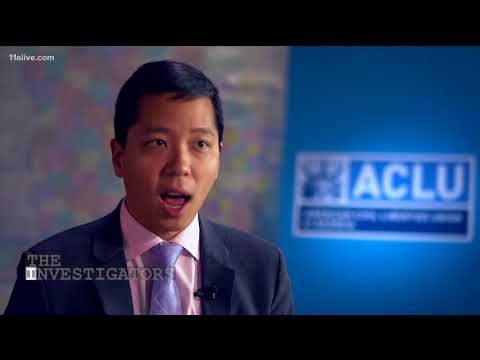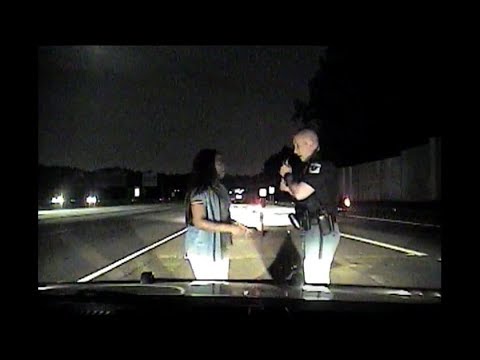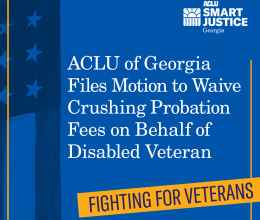THE REVEAL The Drug Whisperer: Federal appeals court to decide case of sober drivers arrested for DUI
Judge denies bid to quash challenges to Georgia election law changes
The Reveal investigative team uncovered DUI arrests of sober drivers in Cobb County, arrests now under the microscope of the 11th Circuit US Court of Appeals.
By Brendan Keefe| 11Alive| December 17, 2021
Share on print Share on facebook Share on email Share on twitter
Other Pages


ATLANTA — Katelyn Ebner was arrested for driving stoned. So was Princess Mbamara, Ayokunle Oriyomi, and Britney Penwell.
But state lab tests showed they had something else in common: no trace of drugs in their blood.
Now their lawsuit against Cobb County Police is in the hands of a three-judge panel from the 11th Circuit U.S. Court of Appeals. The court heard oral arguments from the Georgia ACLU and from Cobb County’s attorneys Friday morning, after the U.S. District Court had dismissed the case in favor of the police.
The Reveal investigative team first uncovered these cases when investigating the arrest of Katelyn Ebner in 2016. 11Alive Chief Investigator Brendan Keefe had examined every arrest by the same DUI officer in Cobb County over an entire year.
Keefe’s manual examination of dozens of arrest records and court files showed four nearly-identical cases where the same officer’s roadside examination concluded the drivers were impaired by marijuana, but where their blood tests came back clean.
Our series of investigative reports, The Drug Whisperer, scrutinized the officer’s certification as a Drug Recognition Expert.The training taught him and other officers that they could detect impairment even better than a lab test.


Ebner, Mbamara, Oriyomi, and Penwell all had their DUI cases dismissed after prosecutors received the negative drug tests from the Georgia Bureau of Investigation, weeks or even months after the drivers were arrested.
Cobb County changed its policy after our initial investigative reporting, and now CCPD officers issue citations instead of jailing drivers suspected of drug impairment, at least until the drug tests come back from the lab.
Georgia's ACLU took the cases of all four drivers we identified, and filed suit for wrongful arrest on their behalf against Cobb County.
The U.S. District Court granted a motion for summary judgment filed by Cobb County, determining the officer was entitled to qualified immunity, and that Cobb County could not be held liable because the officer had enough probable cause to make the arrests using other techniques.
Georgia’s ACLU filed an appeal with the 11th Circuit on the grounds that the eye exams and other field sobriety tests used by the officer to develop probable cause for arrest were validated only to detect alcohol impairment, not drug use.
Attorney Sean Young with Georgia’s ACLU argued that a jury should decide a genuine disagreement over the basic facts and between the experts from both sides.
Attorney George Weaver, representing Cobb County, argued that the officer had enough probable cause to make an arrest even without the disputed techniques.
Questions from the three judges suggested that they are hesitant to throw out standard field sobriety tests for detecting drug impairment, even though there are lingering questions about their validity.
There’s much more at stake than just the lawsuits of four drivers against Cobb County.
If the judges grant the drivers’ appeal, sending the case back to the lower court for trial, the 11th Circuit would cast doubt on techniques used by police nationwide to detain and arrest drivers suspected of drug impairment.
If the judges uphold the dismissal, the 11th Circuit will, in effect, give its stamp of approval on methods that have not been validated — methods that have resulted in the arrests of multiple innocent drivers.
A decision is expected early next year.
Related content
Atlanta mayor orders restriction of access to pot conviction records
December 17, 2019Atlanta mayor orders access restriction for some pot records
December 17, 2019PRESS STATEMENT ACLU of Georgia Thanks Atlanta Mayor Bottoms for...
December 16, 2019Superior Court of Elbert County Grants ACLU of Georgia’s Motion to...
December 14, 2018
ACLU of Georgia Files Motion to Waive Crushing Probation Fees on...
October 30, 2018PRESS ADVISORY: ACLU of Georgia to Testify at First Meeting of...
August 29, 2018